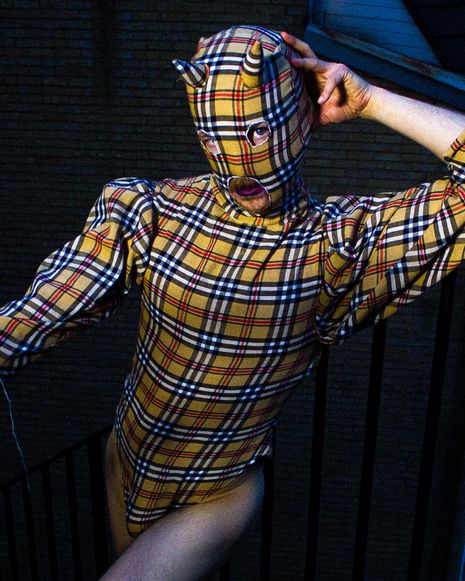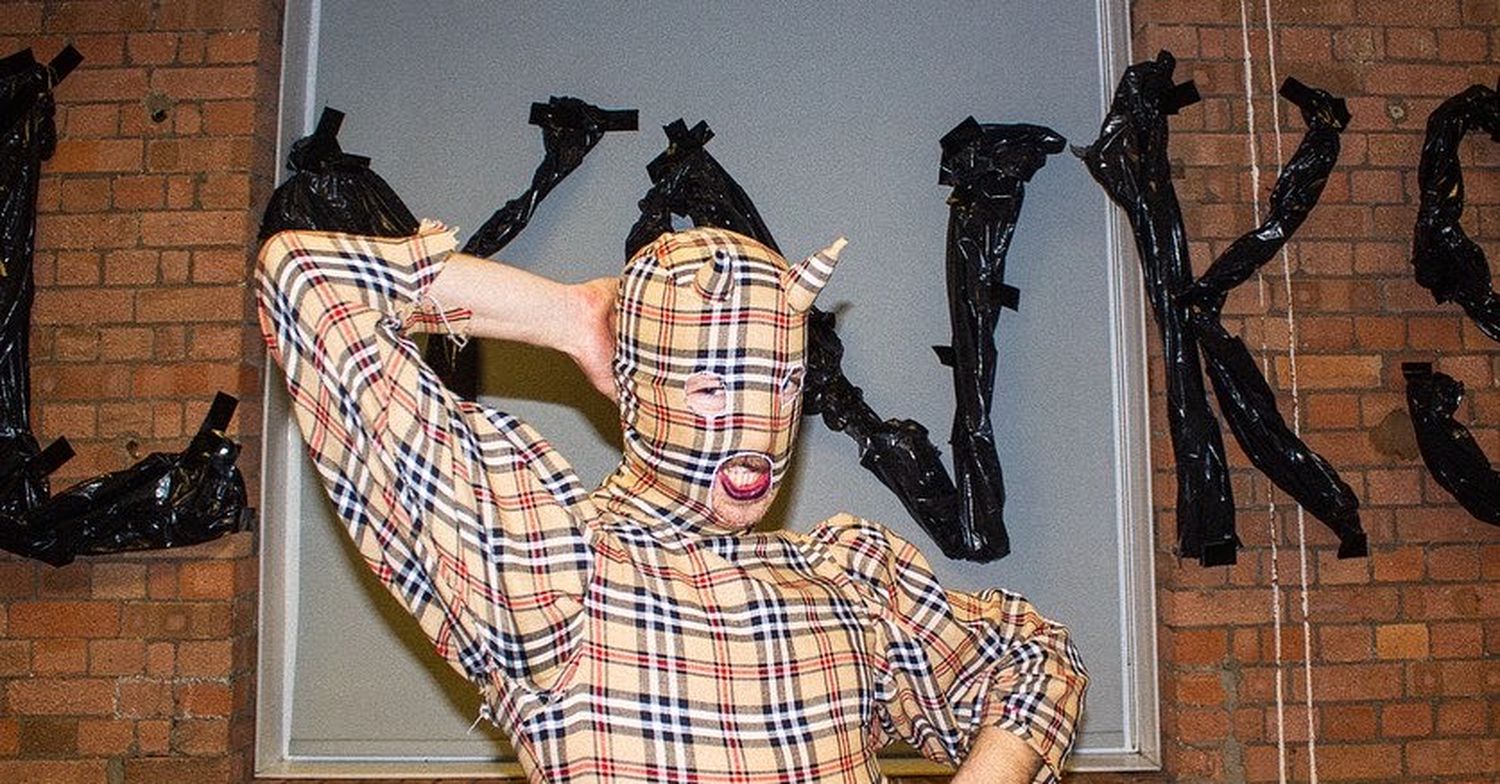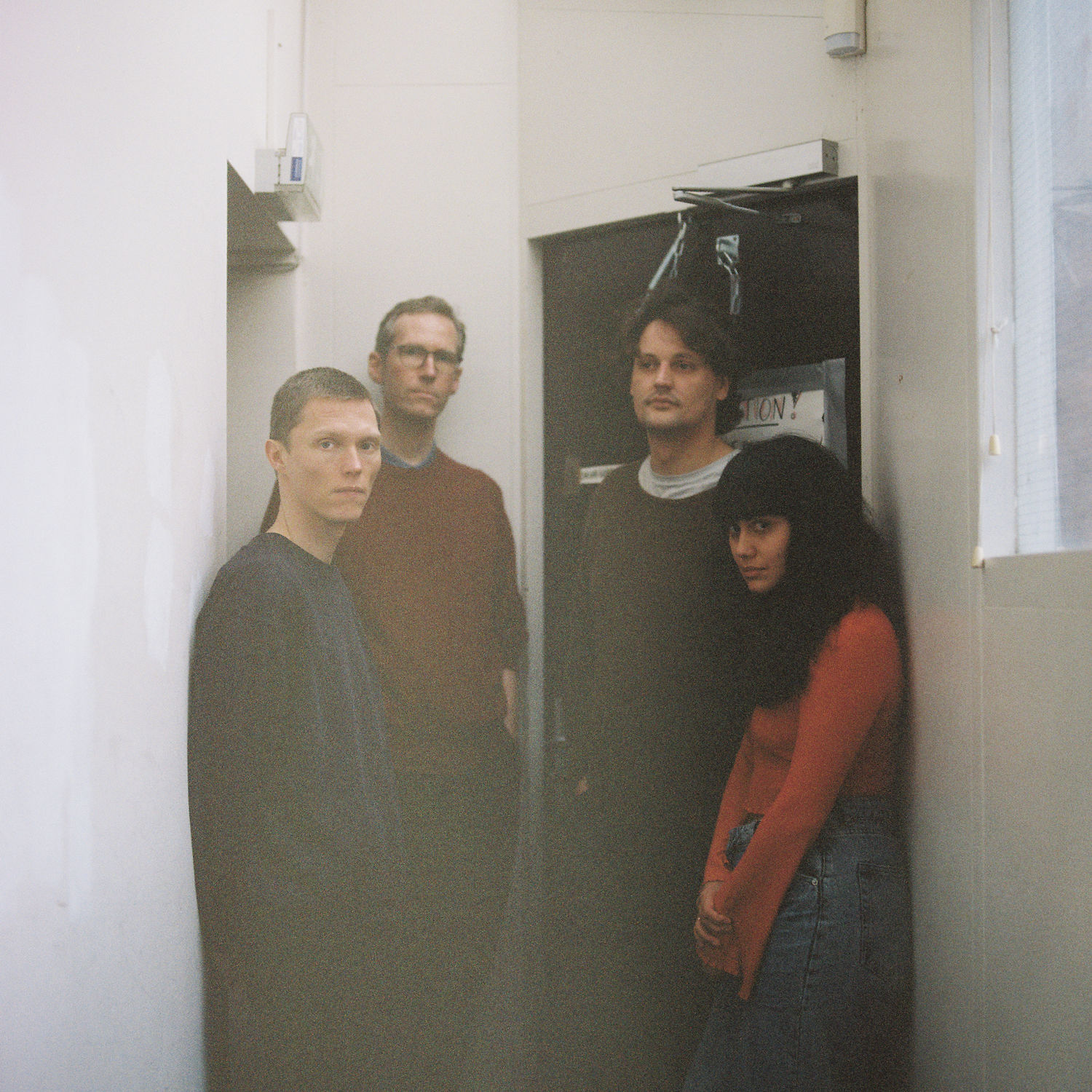With the release of his new five track EP Smash Hits Vol.2 on January 27th, and a collection of fantastic music videos preceding it, South-London-based musician Lynks is on a roll. The EP is upbeat and satirical - industrial pop blended with theatricality, queerness, and a whole host of incredibly witty lyrics. Having played sold-out headline shows across the UK and been tipped as “one to watch this year” by The Guardian and DIY amongst others, Lynks continues to garner attention with his outlandish costumes and catchy beats. I’m sitting down with Lynks (over Zoom, naturally) to talk about his roots, influences, creative process, and the experience of being an up-and-coming musician during a pandemic.
The music video for Everyone’s Hot (And I’m Not) dropped at midnight on the day of the interview, and Lynks is very happy with the response to it. This is probably his favourite song he’s written so far, he says. Given that everyone is starved of live music and performance, he wanted to “give people a fucking show” with this video - and he certainly succeeds. It is all one-shot; meticulously choreographed and dynamic. He and his team recorded it seven times, due to problems with a confetti cannon, and a piñata they could only smash once. It’s vivacious and epic, and definitely an entertaining watch.
A mutual friend of ours once reminisced about Lynks DJing at a party aged 15. I ask whether he has always been drawn to performance, or if there was a specific moment when it clicked for him. His answer says it all: he vividly remembers performing the song Thank You by Jamelia when he was about 5 years old, to an entire room of his parents’ friends. “You’d see that image and you’d think that would be one of those pushy parents being like, ‘Come on sweetheart, do a song for them!’ but in reality it was me being like, ‘Okay everyone shut up I’m going to sing some Jamelia now.’” He says he’s always enjoyed performing: “It’s maybe about wanting attention, if I’m being honest.”
“Having a life which revolves around your own ego is a recipe for disaster”
We turn to the origins of his act, as I’ve always been intrigued by its conception. He says that he doesn’t think of Lynks as a conscious persona, but rather what happens when you get rid of the “dimmer switch” on his personality. He says that the mask suppresses the instinct to tone it down because “you’re no longer representing yourself, you’re a separate being,” and so there are no worries about embarrassing yourself or being too much. He adds that he doesn’t like having his real name associated with the act: “The not knowing is so much more exciting than the actual person ever could be.” As much as he loves visuals and dressing up, he professes that he is extremely anti-narcissism, “probably because there’s some of it in me, and it’s an aspect of myself that I can see and I don’t like.” With the anonymous look of Lynks, he can flex aesthetic muscles without making it about himself.

I ask him about how he strikes a balance between anti-narcissism and the discussion of identity politics in his music. “Having a life which revolves around your own ego is a recipe for disaster,” he replies, on striking the balance between self-love and self-obsession. “This is what Brand New Face was about: society says that if you don’t like something about the way you look you should just change it, and it calls that self-love. All of the adverts have this rational of ‘Do it for you babes’... and it’s a profitable thing, because if everyone’s insecure all the time it’s going to do fucking wonders for the economy. And that’s what the song is about - how we’re being encouraged not to love ourselves but to make ourselves into someone that we’d love.”
“At the start it was me just hot-glueing a lot of random pieces of trash to myself”
In terms of the Lynks aesthetic, his initial reference was Alexander McQueen’s Horn of Plenty dress collection, in which all of the models have clown-white faces, massive overdrawn lips, and red, white and black outfits. He’s gradually moved towards the “Leigh Bowery club kid vibe”, with its masks and garish patterns. He has always made all his costumes, so it’s been an evolution based on his own construction skills. “At the start it was me just hot-glueing a lot of random pieces of trash to myself because that was my skill set, whereas now it’s kind of like… amateur sewing class vibes.”
We have a moment’s interlude for him to chase away a squirrel in the garden who is digging up his plants, and then another to obsess over Courtney Barnett. There is an excellent cover of Pedestrian At Best (a lyrically genius song) on the EP, and I ask him why he chose to cover it. He replies that he got a proper analog synth at the start of lockdown and wanted to play around with it, and covers are a good way of making things when you’re not that inspired. “Everyone’s just given up on it now, but back in the livestream era of lockdown 1.0” he performed the cover on a livestream and it got a lot of love from his followers - more than his original new songs, he jokes - and people asked him to do something with it. He says that Courtney Barnett’s vocals influenced him a lot: “For the first six months of doing Lynks I was basically doing an English Courtney Barnett impression.” The music video for his cover is dark and more than a little creepy. “We were like, ’Let’s just do gay Donnie Darko!’” he says.
Other than Courtney Barnett, his current musical influences include M.I.A., Peaches and Kero Kero Bonito. When I ask who he would collaborate with if he could, he says SOPHIE, without hesitation. “I think SOPHIE’s the best producer in the world.” Since this interview, the visionary SOPHIE has tragically passed away.
“You have to hype yourself up so much to perform and normally when you’re on stage the fear goes away because of the adrenaline, but with a livestream you get really nervous and anxious”
There is a break while he checks he hasn’t burnt his halloumi and roast veg, and then I ask Lynks what changes he’d like to see to the music industry in the UK. “More money for artists! Gigs!” he replies. Livestream ‘gigs’ haven’t worked too well for him, he reveals, because they don’t currently attract a big enough audience. “It’s difficult to get excited because all you imagine is a room of five people. You have to hype yourself up so much to perform and normally when you’re on stage the fear goes away because of the adrenaline, but with a livestream you get really nervous and anxious and then nothing changes. When you perform on stage you can have drinks with people afterwards… when I do a livestream I finish and I’m just a sweaty bundle of nerves who needs to get my makeup off. I find them to be quite deflating.”
When I ask where he would like to be in five years, hoping the question won’t provoke an existential crisis, he replies, “I would just like to be on a big stage at a festival. All I ever wanted to do my whole life was play at festivals and it was meant to happen last summer.” (He was lined up to play Glastonbury.) “So I hope in five years I’m sweaty in a field, covered in mud, performing to a crowd, half of whom are having the worst day of their life and half of whom are having the best day of their life. That’s all I want.”
I’m sure I’m not alone in hoping that Lynks, and other young experimental musicians, will be able to resume their exuberant creative existence soon - on stage rather than online. But for the moment, I'll leave him to eat his halloumi and roast vegetables.


